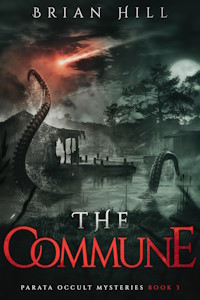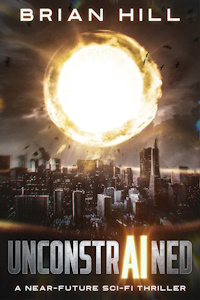Three books that I have read in recent years have completely eliminated my ability to enjoy your typical space-opera sci-fi. And believe it or not, I think that’s a good thing.
Here’s the issue: Most sci-fi authors are not imaginative enough to envision anything that could even approximate reality in 100+ years. The most basic example of this is the space-opera concept of battles in space being overblown dogfights or even approximating WW II era naval warfare. Both of these ideas are preposterous.
First, in both cases, the problem is both distance and speed. The distance issue is the reason we don’t dogfight, or use big barreled cannons on ships, even now. Most aerial engagements take place at distances so great, that targets are engaged beyond the horizon line. In other words, fighterpilots can’t even see the planes they are shooting at when they launch a missile. Ship-to-Ship battles are handled similarly.
Looking at the history of warfare, you can see this isn’t a fluke. Polearm weapons (from spears to voulges) were developed to increase engagement distance. After all, if you can engage the enemy before they can engage you, your chance of an injury-free victory is greatly increased.
All ranged weapons follow this principle as well. We build bigger and bigger cannons and artillery to shoot farther and farther, until we developed the guided missile. Now, we use missiles more often because they can be fired from great distance and hit a target before the target knows they are even being attacked.
Scale this up into high-powered light-speed weapons (i.e. lasers), and you have tactics like firing a laser from a satellite and using gravitational lensing to change the trajectory of light to hit objects light-days or farther away from such a convoluted and lengthy path that determination of the origin is no longer possible. Find that in Star Trek.
Back onto topic, the more sci-fi I read, the more I find that most sci-fi authors (even some I really love, like Robert J Sawyer) simply aren’t imaginative enough to spin a tale that has any possibility of ever happening.
However, to give them some credit, this is a herculean task. Seriously, can you imagine what the next 100 years is likely to hold? In 1910, could you have imagined nanorobotics? What about a modern smartphone? How about the ability to print objects out of a lump of plastic?
If that isn’t enough to give you some perspective, just keep this in mind: The rate of change is increasing exponentially. The next 100 years may be 10 or 100 times more wonderfully chaotic than the last 100 years. Sound intriguing? If so, you might want to check out the following three books (Two of them are even available, in their entirety, for FREE online; Just click on the link in the title). They will likely completely change your view on Sci-fi and the future.
This is probably the most approachable of the three, and also potentially the most unique. While all three books deal with the technological singularity, this one approaches it from a unique angle: Self-aware lymphocytes. The idea is so incredibly strange that the whole book is has a very spacy feel, despite the fact that it is set in (more or less) modern day. Still, the end result (the singularity) is dealt with, and in a very fresh and imaginative way.
The Metamorphosis of Prime Intellect by Roger Williams
First and foremost, let me say that in my opinion, this is the best actual book on this list. The story was completely riveting for me; Inventive, persuasive, and powerful. In fact, the only thing I can really say negative about the book is that it is very graphic, so if you are prudish, you should probably skip it. It completely explores the possible ramifications of the singularity including all of the perversions that come with simulated reality. This is actually part of it’s power: Any attempt at a realistic portrayal without examining these paths is a lie. Still, it doesn’t get tied up in it, and it has the best portrayal of the actual singularity that I have read. Best of all, it’s free to read online (though this one is self-published by a relatively unknown author – If you like the book, do the guy a favor and buy it on lulu.com).
Accelerando by Charles Stross
Let me begin this by saying that this is, without a doubt, the most far reaching, imaginative, and realistic of the three books. This book is full of concepts and ideas that I had personally never even considered, and was without a doubt the most earth-shattering of the three.
Unfortunately, all of those things are also what make the book very inaccessible to most readers, as you really need to be able to follow a lot of threads at once. Also, while still a good read, I wouldn’t necessarily say it’s a good book. As a lauching pad to get your mind working, however, this book cannot be beat.
Matrioshka brains, self-evolving corporate instruments, and weak God-like intelligences are all weaved into a masterpiece of not one, but several technological singularities as the Universe races to convert all dumb matter into computronium and hack the fabric of space-time.
If this book doesn’t blow your mind, you need to send me your reading list. This one’s also available for free by clicking the link in the title.



Recent Comments